Security threats to journalists in war zones and occupied territories, repression against media workers in Crimea, and the impact of aggression on the financial stability of the media were the issues discussed at the press center of the National Union of Journalists of Ukraine (NUJU) during a roundtable dedicated to World Press Freedom Day.
Opening the event, NUJU First Secretary Lina Kushch emphasized that thanks to Ukrainian journalists, the world saw the crimes of Russians and got to know how our citizens organize and support each other.
“The best way to resist Russian propaganda is to develop own media and create opportunities for journalist work. Do not allow Russian propaganda to construct a parallel reality. Another task of the media is to document Russian crimes as fully as possible, as evil must be punished,” noted Lina Kushch.
Journalists at the front
Media workers on the front line must follow the established rules and recommendations. Apostrof TV journalist Mykhailo Sharkov said this during the roundtable.
According to him, a journalist on the front line is a target for the enemy.
“If the Russian military receives information that a journalist is working somewhere nearby, they will use all opportunities to stop that work, capture or kill the media worker,” he noted.
Mykhailo also said that the people who lived near the front line and took him in for the night asked to park the media car away from their home to avoid danger. Sometimes it’s better to remove the PRESS sticker from the front lines,” he added.
Dangers of occupation
Journalists who find themselves in occupation actually lose the opportunity to engage in professional activities. There are rare cases of abduction and pressure on media workers. In addition, journalists are killed in enemy artillery shelling. An enemy projectile took the life of Mariupol TV cameraman and photographer Viktor Diedov.
“In the afternoon of March 11, two shells flew into our apartment. The first to where my mother and I were, we were injured. The second one to where my son Sasha, father-in-law, and Viktor were. Sasha began to drag his father-in-law outside, to the corridor, to the elevator, and Viktor went to my month over mom’s and my room. At that moment, another shell arrived. I remember how I shouted: Sasha, where are you? He answered me three times: Mom, I’m here. For me, the most important thing was that my son was alive because I could not think that my husband could be killed,” said his wife, journalist Nataliya Diedova.
Resilience loss
With the beginning of the full-scale war, many media were forced to stop their activities due to lack of funding. It is especially difficult for print media.
“Nowadays, newspapers are something luxurious. Their cost is channeled not only to pay salaries to the team, which was a meager percentage of the lowest wage at the time of the full-scale aggression of Russia. We had to buy paper we didn’t know where to get,” said Iryna Khramova, a deputy editor-in-chief of Ukraina Moloda.
The NUJU, attracting international donors, helped the newsroom resume printing in May last year. Iryna noted that since the grant programs are primarily intended for local mass media, the country needs a state program to support the printed word.
Russian repression against journalists in Crimea
Pro-Ukrainian journalists in the territories occupied and seized by Russia are under pressure. Russian repression against journalists has been going on in Crimea for nine years, and since the full-scale invasion, the practice spread to other southern regions of Ukraine as well.
Oleksandr Hunko, a journalist from the Kherson region and editor of the Nova Kakhovka.Citi website said that during his stay in Russian captivity, despite being beaten and threatened, he did not agree to cooperate with the enemy.
“Our website worked during the occupation, so we had to be careful when submitting information. When we managed to get to the territory controlled by Ukraine, we started working in full force,” Oleksandr Hunko says.
Mykola Semena, a journalist and columnist for Krym.Realii (a Radio Liberty Project) noted that journalists were brutally repressed after the capture of Crimea.
“The occupiers tried journalists for freedom of speech, which is absolute nonsense. However, such facts did take place. Later, people who risked their freedom for the sake of freedom of speech began to be tried based on fabricated facts,” Mykola Semena emphasized.
UNESCO representative Theresa Chorbacher attended the event. She reminded that UNESCO supports media workers, including journalistic organizations, which seek to ensure freedom of speech. One such partner is NUJU.
Besides, within the framework of the roundtable, a presentation of the Murdered Free Speech booklet. Journalists – Targets Of Russian Military Offensive took place. The booklet investigates Russian attacks on media workers and includes eyewitness evidence of war crimes. In particular, the booklet covers the stories of journalists killed since the beginning of Russia’s full-scale invasion; those who were in Russian captivity; cases of destruction of property and newsroom buildings; persecution of Crimean Tatar citizen journalists in occupied Crimea, and other essential topics.
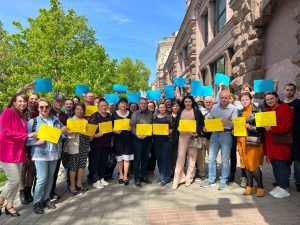
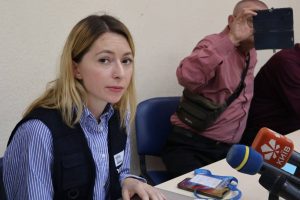
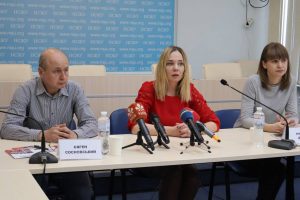
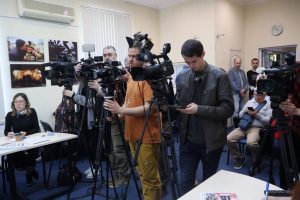
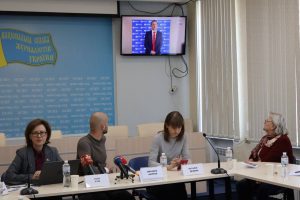
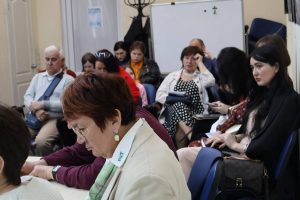
NUJU Information Service

 THE NATIONAL UNION OF
JOURNALISTS OF UKRAINE
THE NATIONAL UNION OF
JOURNALISTS OF UKRAINE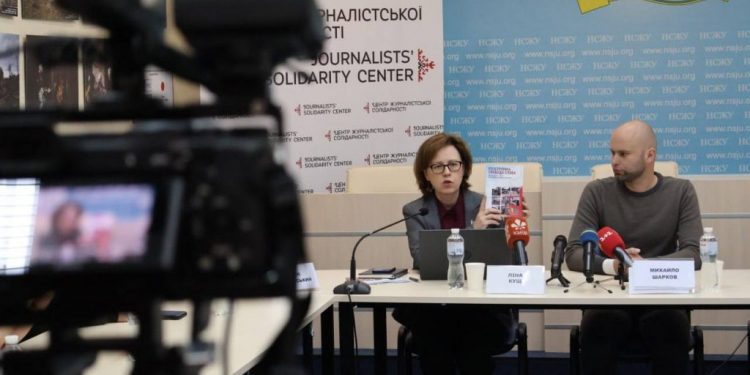
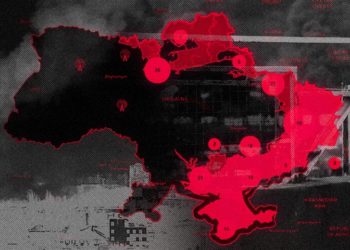
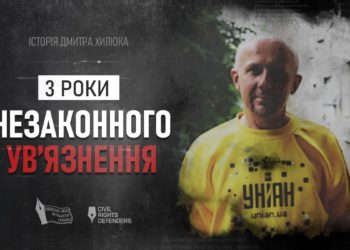
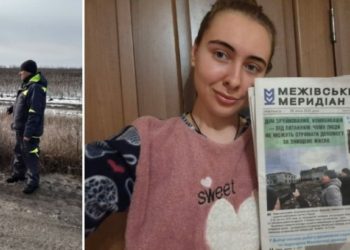













Discussion about this post